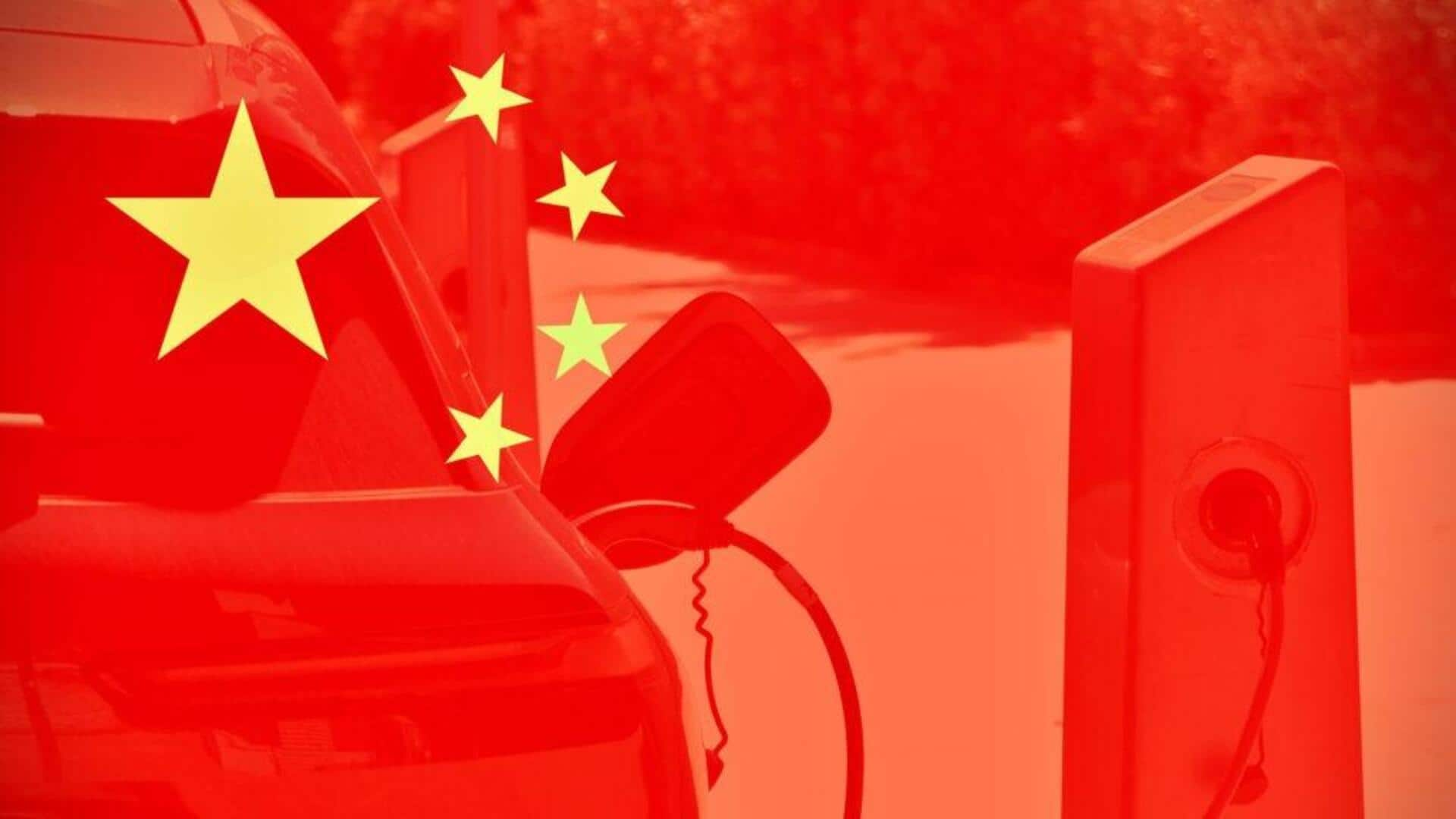
China imposes new export controls on EV battery technology
What's the story
China has imposed new export restrictions on technologies crucial for manufacturing electric vehicle (EV) batteries. The move is aimed at bolstering the country's dominance in the sector, which has been instrumental in its lead in the global EV race. The Chinese government has added several technologies used in EV battery production and lithium processing to its export control list.
Similar measures
Similar restrictions imposed on certain rare earth elements
The new export restrictions are similar to those imposed three months ago on certain rare earth elements and their magnets. These materials are critical not just for EV production but also for consumer electronics and military equipment such as fighter jets. China's control over the rare earths supply chain has become a major weapon in its ongoing trade war with the United States.
Market leadership
China's dominance in global EV market
China has become a dominant player in the competitive global EV market, owing to its ability to produce high-performance, cost-effective batteries. This is made possible by its integrated supply chain from raw material processing to battery manufacturing. According to SNE Research, a market research and consultancy firm, Chinese EV battery manufacturers hold at least 67% of the global market share.
Impact on expansion
Uncertainties over overseas expansion plans of Chinese EV makers
The new licensing requirements have raised uncertainties over the overseas expansion plans of Chinese EV makers. This is especially true as markets like the European Union have imposed tariffs on Chinese car exports to encourage local production. Many Chinese battery manufacturers are also planning to localize production in regions such as Southeast Asia and the US.
Official statement
'Restrictions are meant to safeguard national economic security'
The Chinese government has said that these restrictions are meant to "safeguard national economic security and development interests, and promote international economic and technological cooperation." Liz Lee, an associate director at Counterpoint Research, said the move "deepens the emerging geopolitical tech decoupling beyond materials to process IP (intellectual property)." This could speed up efforts by the US, EU, and others to boost localization of precursor materials and metal refining capabilities.